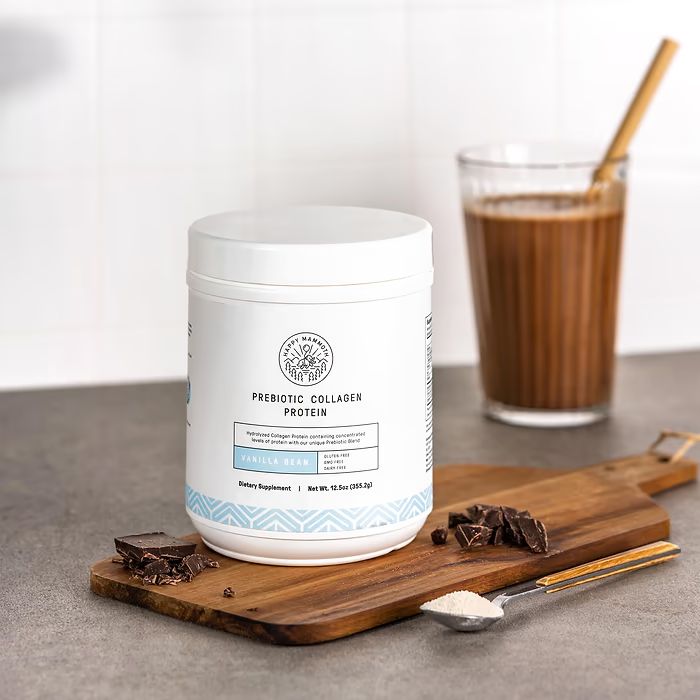In the ever-evolving landscape of health and nutrition,the ketogenic diet has carved out a prominent niche,beckoning enthusiasts with its promise of weight loss and enhanced energy levels. however, as more individuals embrace this low-carb lifestyle, a new conversation emerges about the profound impact that diet can have on gut health. enter the world of keto supplements, where the synergy of prebiotics and electrolytes offers a treasure trove of benefits for digestion. As we delve into this intriguing intersection of keto and gut wellness, we uncover how these essential supplements can not only support your dietary goals but also nurture the delicate balance of your microbiome.Join us on a journey to explore the vital role of prebiotics and electrolytes, revealing how they can enhance digestive function and overall well-being in the context of a ketogenic lifestyle.
Understanding the Role of Prebiotics in Keto Diets for Enhanced Gut Function
Prebiotics play a crucial role in enhancing gut health, especially for those adhering to a ketogenic diet. As individuals reduce carbohydrate intake, they potentially disrupt gut microbiota diversity, which is pivotal for digestion and overall health. Incorporating prebiotics into a keto regimen can support gut flora diversity and encourage the growth of beneficial bacteria.Some common prebiotic sources that fit within the keto framework include:
- Chicory root: A fiber-rich option that nourishes healthy gut bacteria.
- Garlic: Contains inulin, a powerful prebiotic that aids digestion.
- Onion: Offers both taste and prebiotic benefits, enhancing overall meals.
- Leeks: A versatile vegetable packed with gut-kind fibers.
Furthermore, the synergistic relationship between prebiotics and the electrolytes commonly supplemented in keto diets cannot be overlooked. Electrolyte balance is essential for maintaining proper hydration and nerve function, while prebiotics can optimize metabolic processes and nutrient absorption. By promoting a healthy gut surroundings, prebiotics can ensure that the body effectively utilizes the electrolytes consumed, creating a holistic approach to gut health. Consider a table to summarize key prebiotic sources alongside their benefits:
| Prebiotic Source | Key Benefit |
|---|---|
| Chicory Root | Supports beneficial bacteria growth |
| Garlic | Enhances digestive health |
| Onion | Boosts immune function |
| Leeks | Aids in nutrient absorption |

The Importance of Electrolytes: Balancing Your Body While on Keto
While following a ketogenic diet, your body undergoes meaningful changes, notably in how it processes nutrients and electrolytes. Electrolytes such as sodium, potassium, magnesium, and calcium play a crucial role in maintaining the body’s hydration levels and nerve function.As you transition into ketosis, you may experience a rapid loss of these essential minerals due to decreased insulin levels, which allow your kidneys to excrete more water and electrolytes. To maintain optimal body function and to support energy levels, it’s vital to replenish these electrolytes regularly. Essential dietary sources include leafy greens,nuts,seeds,and electrolyte-rich supplements designed specifically for keto dieters.
Failing to balance your electrolyte intake can lead to a host of unpleasant symptoms collectively referred to as the “keto flu,” which includes headaches, fatigue, and muscle cramps. To stay on track, consider incorporating a variety of electrolyte sources into your meal plan. A simple way to visualize your intake is through a table that outlines the key electrolytes and their keto-friendly sources:
| Electrolyte | Sources |
|---|---|
| Sodium | Sea salt, broth |
| Potassium | Avocados, spinach |
| Magnesium | nuts, dark chocolate |
| Calcium | Dairy, leafy greens |
By understanding the importance of electrolytes in your keto journey and recognizing their dietary sources, you equip yourself to maintain a balanced and healthy state while enjoying the unique benefits of a low-carbohydrate lifestyle. Regularly monitoring and adjusting your electrolyte intake not only enhances your physical well-being but also contributes to better digestion, energy levels, and overall health.

Connecting Gut health and Keto: How Supplements Can Make a difference
The ketogenic diet is renowned for its potential benefits in weight loss and metabolic health, but an often overlooked aspect is the impact it may have on gut health. Prebiotics,which are the non-digestible fibers that nourish beneficial gut bacteria,can be particularly effective on a keto plan. Including prebiotic-rich foods or supplements can help support a healthy microbiome, which may improve digestion and nutrient absorption. Consider adding sources of prebiotics such as:
- Chicory root
- Jerusalem artichokes
- Garlic
- Onion
- Asparagus
Moreover, maintaining electrolyte balance is crucial when adopting a ketogenic lifestyle due to the body’s initial loss of water weight and subsequent depletion of essential minerals.Incorporating electrolyte supplements can alleviate symptoms like fatigue, muscle cramps, and gastrointestinal discomfort. A well-rounded approach to supplementation on a keto diet may include potassium, magnesium, and sodium. Here’s a simple table to illustrate the key electrolytes and their benefits:
| Electrolyte | Benefits |
|---|---|
| Potassium | Helps maintain fluid balance and supports cellular function. |
| Magnesium | Crucial for muscle function and energy production. |
| Sodium | Essential for hydration and helps manage blood pressure. |

Practical Tips for Incorporating prebiotics and Electrolytes into Your keto Lifestyle
Integrating prebiotics and electrolytes into your keto diet can enhance both your gut health and overall wellbeing.Start small by incorporating fiber-rich foods such as artichokes, garlic, and onions, which are excellent sources of prebiotics. Consider adding a high-quality prebiotic supplement to your routine if you’re finding it challenging to get enough from food alone. Additionally, increasing your intake of fermented foods such as sauerkraut, kimchi, and kombucha can promote the growth of beneficial gut bacteria while complementing the low-carb principles of keto.
Maintaining electrolyte balance is crucial on a ketogenic diet due to the body’s adjustment to burning fat for fuel, which can lead to a loss of minerals. Stay hydrated by drinking plenty of water and consider adding a pinch of Himalayan salt or using an electrolyte powder with minimal carbs. Foods rich in potassium,magnesium,and calcium are essential; try avocados,nuts,and leafy greens. To visualize your intake, refer to the table below for a fast overview of keto-friendly sources of electrolytes:
| Electrolyte | Food Sources | Benefits |
|---|---|---|
| Potassium | Avocado, Spinach | Supports nerve function and muscle contraction |
| Magnesium | nuts, Seeds | Regulates muscle and nerve function |
| Sodium | Salt, Broth | Maintains fluid balance |
| Calcium | Dairy, Leafy Greens | Crucial for bone health |
In Retrospect
the intricate dance between keto supplements and gut health unveils a captivating realm of possibilities for those embarking on a low-carb journey. By integrating prebiotics and maintaining a balanced electrolyte intake, we can foster a thriving digestive environment that supports our overall well-being. As we embrace the ketogenic lifestyle, understanding the vital role these components play may not only enhance metabolic efficiency but also promote a harmonious gut ecosystem.
As with any dietary approach, individual experiences will vary, but the science behind prebiotics and electrolytes offers a roadmap to optimize our health. So, as you navigate the keto landscape, consider giving your gut the nourishment it craves. By prioritizing gut health through thoughtful supplementation, you can pave the way for a triumphant, enduring keto journey. Here’s to discovering the synergy between diet and digestion, and to a healthier you!



